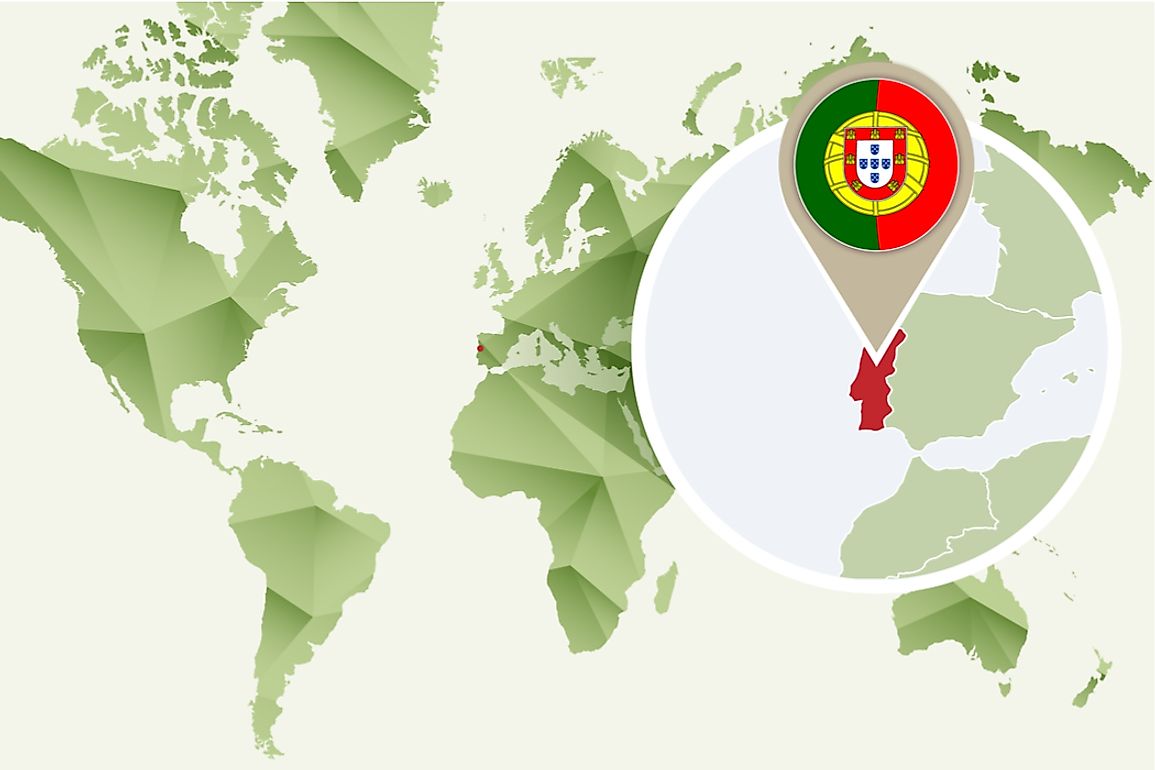What Continent is Portugal In?

Portugal is located in the westernmost portion of the mainland Europe, on the Iberian Peninsula. The nation is officially called the Portuguese Republic. The country borders to the west and south the Atlantic Ocean and Spain to the north and east. Lisbon is the most significant city and capital of Portugal. A 2016 estimate placed the population of Portugal at over 10.3 million people, having a total area of 35,603 square miles. Portugal has one of the best road networks in the world and is considered a developed country with high living standards. The state is a part of the United Nations, NATO, OECD and the European Union.
Southern Europe
The southern part of the continent of Europe is also known as the Mediterranean Europe. The region includes Southern France, part of Spain, Italy, and Greece. Despite not having a coast in the Mediterranean, the area also includes Serbia and Portugal. Portugal occupies most of the west of the Iberian Peninsula located in the south-western part of Europe. Portugal and the Kingdom of Spain occupy most of the peninsula. The Iberian Peninsula covers an area of approximately 225,000 square miles becoming the second largest in Europe after the Scandinavian Peninsula.
Portugal in the EU
Portugal joined the European Union on January 1, 1986, when it was known as the European Economic Community. EU’s structural and cohesion funds made Portugal’s economy to progress remarkably. Portugal has 21 European Parliamentary members, and the country has December 2007. The government in Portugal sends representatives to regular Council meetings, held to approve EU laws and agree on policies. Portugal nominated Carlos Moedas to the European Commission where he is in charge of Research, Science, and Innovation. The Portuguese Republic has 11 representatives in the European Committee of the Regions and 12 in the European Economic and Social Committee.
Relationship with Other European Countries
Portugal formed the Anglo-Portuguese Alliance with England in 1386, a deal that helped progress the two countries. The United Kingdom continues to honor the agreement to date. Portugal began implementing Schengen Area rules that eliminated border control with other members of Schengen on March 26, 1995. About 78% of imports into Portugal come from other members of the EU with Spain being the most significant exporter to the country at 33%. The member states of the EU take up 75% of Portugal’s exports with Spain being the most substantial importer at 26%. Portugal’s most important economic sectors as of 2016 were wholesale and retail trade together with transport and public administration.
EU Budget and Portugal
The European Union’s budget focuses on the needs of all European countries. In 2016, Portugal contributed €1.598 billion to the EU budget, a sum representing 0.88% of the country’s Gross National Income. The EU spent €3.384 billion in Portugal representing 1.87% of the Gross National Income. Portugal uses the funds from the European Union in programs and projects such as the construction of roads, conservation of the environment and also to subsidize research.











